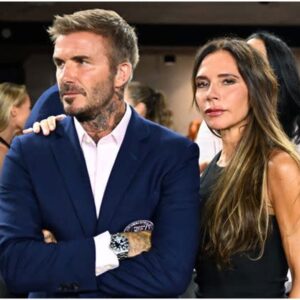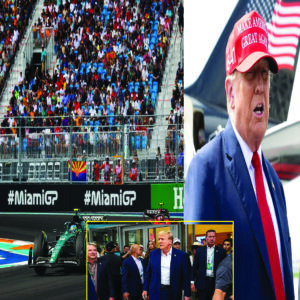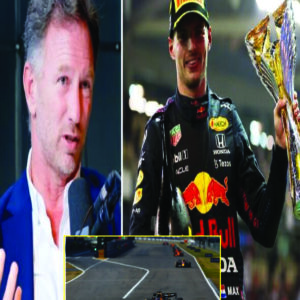When most think of Madonna, cone-shaped bras and voguing instantly come to mind — but in reality, the pop icon is so much more than a material girl.
Over the past 11 years, the singer has become one of the most impactful philanthropists in southeast Africa with her charity Raising Malawi. And for this week’s issue, Madonna invited PEOPLEto journey with her to the beautiful and struggling nation, from which she adopted four of her six children: David, 11, Mercy, 11, and twins Estere and Stella, 5. On July 11, the mega-mom and her family returned to Malawi’s business capital, Blantyre, for the opening of the Mercy James Centre for Pediatric Surgery and Intensive Care, the first children’s hospital in the country.
A month later, at her home in London, Madonna, 59, sat down with PEOPLE to open up about her life as a mom, her emotional adoption journey — and why she’s dedicated to helping the children of Malawi.
Meeting Malawi
Twelve years ago, Madonna was on top of the world. She was in the midst of yet another career renaissance with her acclaimed Confessions on a Dance Floor album and enjoying domestic bliss, living in L.A. with then-husband Guy Ritchie, their son Rocco and her daughter Lourdes (with former flame Carlos Leon). But something was missing.
“I thought, ‘I’m the luckiest person in the world. I have so much, and I feel like I’m not doing enough to help people,’” Madonna recalls.
Soon after, she was put in touch with Victoria Keelan, a Malawian woman who explained the country’s dire situation. Adds Madonna: “The universe was listening. I knew that’s where I was supposed to go.”
In early 2006, Madonna made her first visit to Malawi, a small, extremely poor country surrounded by Zambia, Mozambique and Tanzania. What she found shocked her.
While visiting a hospital in Blantyre, the business capital, “I felt like I was in a concentration camp. There were not enough beds for bodies, everyone was emaciated, and people were dying — of AIDS, of malaria, of malnutrition,” says Madonna. “I had children, and I was looking at all these kids who were going to become orphans or already were.”
:max_bytes(150000):strip_icc():focal(775x0:777x2):format(webp)/madonna-square-opener-1-ac31f11ae24e4339a3580a98e75df528.jpg)
What’s more, the star — one of the first activists during the 1980s HIV and AIDS crisis — says she felt a pang of déjà vu.
“When the AIDS epidemic first came to New York and I was living on the Lower East Side, my best friend was HIV-positive,” Madonna remembers. “I went to St. Vincent’s hospital because I saw that the gay community was being marginalized in a crazy way that I’d never experienced before. I remember going into the AIDS ward with rows of beds, emaciated people, the smell of death. And just feeling a sense of responsibility and compassion, thinking: ‘How can I help these people, how can I love these people, how can I make them feel better?’ Because everyone was casting them aside and not wanting to touch them.”
Madonna had the same feeling on her first visit to Malawi. “I felt like there was another, deeper meaning and reason to be there — to, again, come to the service of people who have been marginalized by a disease that nobody wanted to talk about in Africa,” she says. “The spread of HIV is so prevalent there because nobody is talking about sex or practicing safe sex — those things are taboo. It was just shocking: ‘This is happening again?”
:max_bytes(150000):strip_icc():focal(999x0:1001x2):format(webp)/madonna-people-cover-2000x1333-1-e637bd69aea446eb8758c3749319aae0.jpg)
For much more on Madonna, pick up the latest issue of PEOPLE, on newsstands everywhere Friday.
Hurdles to Helping
From that initial trip to Africa, “I knew I wanted to help right away,” Madonna recalls, “and I knew I could help in big ways and small.”
In 2006, she launched Raising Malawi. Per its mission statement, “Raising Malawi supports orphans and vulnerable children in Malawi through health, education and community support.”
The singer quickly got to work doing just that, opening an orphan care center and vocational school, in addition to working with local clinics that treated HIV-positive children. But there were some growing pains in the beginning.
“At first I did too much and was spreading myself too thin, and I couldn’t handle the workload; I was trying to find people who would be willing to be on the ground,” says Madonna, who chronicled the conditions of Malawi in the 2008 documentary I Am Because We Are. “But there was a lot of turnover — nobody wanted to commit for long periods of time. I couldn’t do it all and take care of my family and do my job. So some of the projects that I worked on fell by the wayside because management was not willing to be accountable to me.”
One of those failed projects was a girls’ academy.
“Girls’ education is super important to me, and many African girls don’t usually go past primary school. It’s not encouraged, and/or it’s not safe because they have to walk really far to get to the school, or there’s no place to go to the bathroom that’s private; it just becomes a dangerous situation, so girls choose not to go,” she says. “Girls stay home, then they get married when they’re 14, 15, 16 — and then they’re housewives and caring for families. It’s a cycle that they can’t get out of.”
After pouring millions of dollars and years of effort into the school, Madonna nixed the project in 2011. She says mishandling of money by Raising Malawi’s former management team led to the project’s demise.
“I brought in these architects and everybody was doing everything pro bono, and I was designing a curriculum, designing the uniforms. I thought it was going to be this wonderful experience, and it ended up completely backfiring on me,” says Madonna, who chokes up thinking back on the project and its aftermath.
She adds: “There was a lot of dishonesty and people taking money and putting it in the wrong places. Sometimes it was spent wisely and everyone was transparent; other times it was like throwing my money out the window. I thought, ‘I trusted these people.’ There were so many disappointments.”
The failed school fueled headlines and drew international criticism.
“I’m the biggest philanthropist in Malawi, but I was being treated like a criminal. It’s crazy. But all my work in Malawi’s been like that,” says Madonna, who didn’t give up. “People would say to me, ‘Oh, you’re so naïve — who do you think you are?’ Then I would go, ‘Maybe they’re right. Who do I think I am?’ After a couple days, I’d think, ‘Everyone who’s criticizing me: What are you doing to make the world a better place?’ At the end of the day, you just have to get on with things, if you believe in what you’re doing.”
Madonna fired the old regime and hired charity management organization Global Philanthropy Group (which has since been acquired by Charity Network) to help oversee Raising Malawi. Charity advisor Trevor Neilson — who has helped manage the philanthropic efforts of everyone from Bill Gates and Bill Clinton to Bono — has worked with Madonna for six years.
“At the time, a lot of people thought she might lessen her involvement,” says Neilson of Madonna following the setback, “but instead she has dramatically increased it and has now — with the completion of the pediatric surgery unit — done something that no one has ever done before in Malawi or, really, anywhere in Africa.”
:max_bytes(150000):strip_icc():focal(999x0:1001x2):format(webp)/madonna-3-988f21a7e3de490a9ec2335b87d2c8c7.jpg)
THOKO CHIKONDI/AP
Making History, Making a Difference
Since her first visit 11 years ago, Madonna says Malawi has become “a second home” to her — and the country has enriched her own family. She adopted David Banda from the capital city of Lilongwe in 2008; a year later, she finalized the adoption of Mercy James, whom she met in Blantyre; and in February, she adopted twins Estere and Stella, who grew up in the same orphanage as David, Home of Hope.
Madonna visits the country at least twice a year, and it’s a family affair each time, including the recent opening of the Mercy James Centre. To celebrate the opening of Malawi’s first-ever children’s hospital; Rocco, now 17, painted a mural in the ward; David performed with a troupe of dancers from the nearby Jacaranda School for Orphans; then Madonna and Mercy — the unit’s namesake — delivered emotional speeches. (Lourdes, now 20, had a dance workshop at college, “but she was there in spirit!” Madonna says.)
“I love when my kids are in Africa,” Madonna says. “Their selfless behavior, compared to the normal complaining in the privileged world we live in, is great to see.”
The star has certainly led by example.
“I’m here to save lives,” she says of her work in Malawi, which this year Global Financial Magazine ranked as the sixth-poorest country in the world. “I don’t want to be the outsider that comes in. I want to help them help themselves.”
Neilson says she’s doing just that.
“She is engaged on a daily basis in a way that people who just write checks are not,” says the philanthropic advisor. “She is tough, smart and extremely committed to this country.”
Dr. Eric Borgstein — a pediatric surgeon at the Mercy James Centre and one of only four pediatric surgeons in the country — met Madonna on one of her first trips and says the new hospital will change the future of Malawi.
Aside from The Mercy James Centre being a state of the art building featuring operating rooms equipped with top of the line surgical tools, Dr. Borgstein says the most important feature of the hospital is that it’s a teaching center.
“In this new facility, we can train nurses, we can train surgeons, we can train pediatricians in critical care,” he says. “It will have a huge impact and create something sustainable. Without Madonna, it wouldn’t have happened.”
Though she’s accomplished so much with Raising Malawi — from the new hospital to partnering with the nonprofit buildOn to open 10 new schools in the country — Madonna’s work is not done.
“I did make many mistakes,” she says. “But I just stayed the course and never forgot my intention, which is to help people, not win popularity contests.”
Adds Madonna: “Helping people is like tattoos. Once you get a tattoo, you keep getting them. It’s addicting. You see the difference you’re making in one person’s life, so what’s the big deal if I help one more person and one more person? It’s been a rollercoaster ride.”
News
Inside Victoria Beckham’s lavish 50th birthday party: All of the Spice Girls reunite in dream come true as even Geri Horner shows up at the last minute for Posh’s £250,000 bash with champagne, cocktails… and dancing planned for well into the early hours
Victoria Beckham’s 50th birthday party was always going to be, well, posh. Swanky Mayfair private members’ club Oswald’s was the venue for what proved a decidedly elegant…
David Beckham’s ‘major’ decision with Victoria and ‘serious’ talk revisited as he turns 49
David Beckham is celebrating his 49th birthday today and is now happily settled in his sprawling Cotswolds estate with wife Victoria Beckham and their children, but 21…
David Beckham Trolls ‘Dramatic’ Wife Victoria for Getting Tired During Their Workout
The couple had a bit of playful banter following their morning trip to the gym Samir Hussein/WireImage David Beckham and Victoria Beckham David Beckham is whipping his wife Victoria…
Victoria Beckham’s Daughter Harper’s Latest Look Shows She’s Already Mini Posh Spice
With Victoria Beckham as her mama, it’s no wonder Harper Beckham is such a glam Queen already. While she has her daredevil traits and love of sports from her dad, David Beckham,…
Donald Trump arrives at the Miami Grand Prix days after having his $250,000-a-ticket fundraiser shut down by race officials
Donald Trump has arrived at the Miami Grand Prix – days after having a $250,000-a-ticket fundraiser at the race shut down by officials. The former president and Republican…
STAPP SIGN Max Verstappen returns to winning ways at Japanese Grand Prix as Lewis Hamilton’s slump continues
MAX VERSTAPPEN won the Japanese Grand Prix to make it a hat-trick for the season. The Dutchman, who won the opening two races in Bahrain and Saudi…
End of content
No more pages to load











